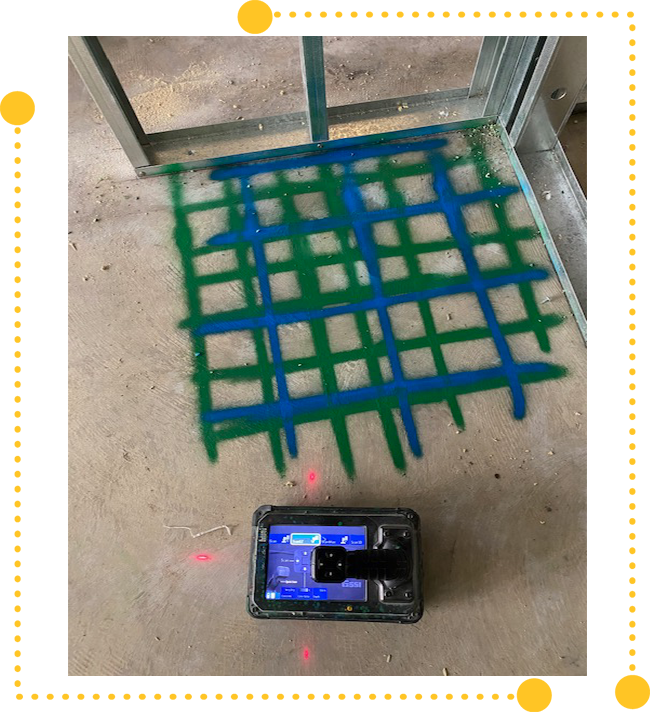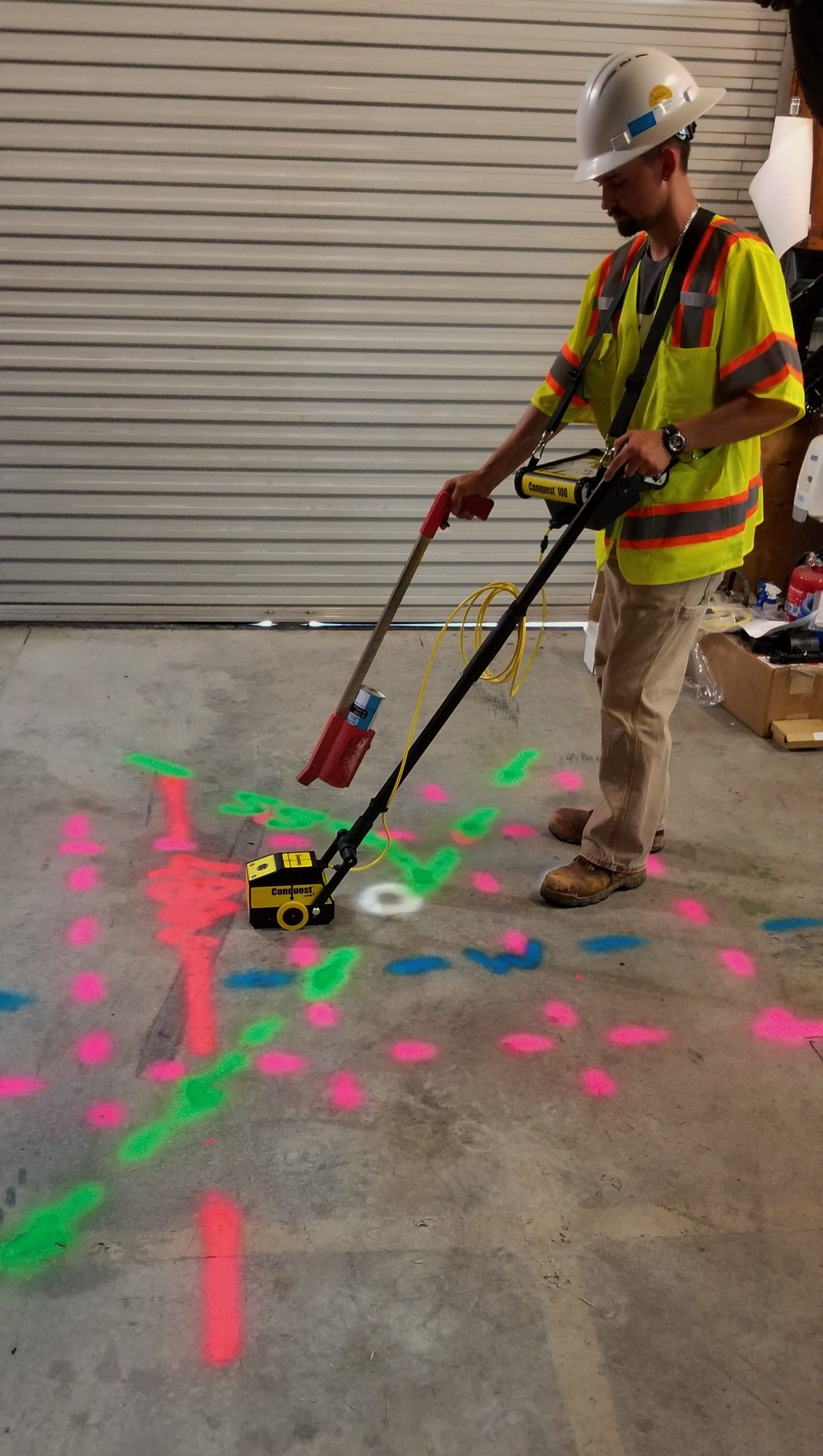Discovering the Key Benefits of Concrete Scanning in Building And Construction Projects
In the world of modern building and construction methods, the application of concrete scanning innovation has emerged as a pivotal tool for ensuring project effectiveness and structural stability. From improving safety actions to properly finding energies concealed below the surface, the advantages of concrete scanning are complex. The capacity to streamline job timelines and reduce prices while protecting existing frameworks is a testament to the value this innovation brings to the building and construction market. As we delve into the nuanced benefits of concrete scanning, it ends up being apparent that its impact prolongs far beyond surface-level analyses, providing a peek into the complex internet of advantages waiting to be revealed.
Enhanced Precaution
Making use of advanced concrete scanning innovation boosts safety procedures on construction sites by supplying exact detection of potential dangers concealed below the surface area. This innovation makes it possible for construction groups to identify rebar, avenues, post-tension cable televisions, and various other blockages before excavation or boring, significantly reducing the danger of mishaps. By identifying these aspects specifically, employees can stay clear of harmful vital architectural components, therefore preventing injuries, delays, and expensive fixings.
Additionally, concrete scanning plays a crucial duty in guaranteeing the integrity of existing structures throughout restorations or growths. By discovering weak points, spaces, or degeneration within concrete elements, designers can address these issues proactively, boosting the total safety and long life of the structure. This positive strategy not only minimizes the threat of structural failings however likewise lessens the possibility for mishaps triggered by unexpected structural deficiencies.
Essentially, the execution of concrete scanning modern technology acts as an aggressive safety procedure that safeguards both building employees and the structural stability of buildings, eventually adding to the total success and effectiveness of building and construction projects. - RainierGPR Concrete Scanning
Accurate Discovery of Utilities
Concrete scanning technology facilitates specific recognition of below ground energies, boosting building website safety and security and performance. Accurate discovery of utilities is vital in construction jobs to avoid pricey damages, project delays, and most significantly, make sure the security of employees and the public. By using sophisticated scanning modern technologies such as ground-penetrating radar (GPR) and electro-magnetic induction, building and construction teams can draw up the area of buried pipes, cords, and other energies with high levels of precision.

Time and Expense Performance

Concrete scanning innovation makes it possible for building groups to properly situate rebar, post-tension wires, and other embedded things within concrete frameworks. This precise information assists in preventing costly errors such as unintentional damage to important aspects during exploration, reducing, or coring activities. Furthermore, by determining possible dangers ahead of time, the need for costly repair services or rework as a result of damages can be minimized, causing cost savings for the job.

Furthermore, the check my reference capacity to quickly and accurately spot utilities underneath the surface without triggering any damage not just conserves time yet likewise avoids pricey disruptions to existing infrastructure. Generally, the moment and price effectiveness advantages of concrete scanning make it a very useful device for enhancing building and construction task management and implementation.
Preservation of Structural Integrity
Protecting the structural integrity of buildings and infrastructure is vital in making certain lasting security and security. Concrete scanning plays a vital duty in this conservation process by allowing building and construction specialists to determine prospective hazards to the architectural stability of a building or infrastructure prior to they intensify into major issues. With the use of advanced scanning technologies such as ground-penetrating radar (GPR) and electromagnetic induction, building teams can non-invasively examine the condition of concrete structures, situate rebar, post-tension cords, and other embedded elements, and recognize any type of spaces, fractures, or deterioration within the concrete.
Improved Job Preparation
In order to make sure the successful implementation of construction jobs, meticulous attention to detail and comprehensive planning are essential parts that stem from an extensive understanding of the architectural conditions identified with concrete scanning. Ultimately, integrating concrete scanning right into the project planning stage improves sychronisation among team participants, promotes proactive analytical, and contributes to the effective delivery of construction projects within budget and timetable restraints.
Conclusion
In conclusion, concrete scanning uses many benefits in construction tasks. By boosting security measures, properly discovering energies, boosting time and expense efficiency, maintaining architectural stability, and assisting in task preparation, concrete scanning confirms to be a crucial device for successful task execution. Its capacity to reduce risks, enhance effectiveness, and make sure project stability makes it an essential index asset for building experts.
In the realm of modern-day building and construction methods, the application of concrete scanning technology has actually emerged as a crucial device for guaranteeing task performance and structural integrity.Concrete scanning modern technology makes wikipedia reference it possible for building teams to properly find rebar, post-tension cable televisions, and other embedded objects within concrete structures. Through the use of advanced scanning innovations such as ground-penetrating radar (GPR) and electromagnetic induction, construction teams can non-invasively examine the problem of concrete frameworks, situate rebar, post-tension cable televisions, and other ingrained aspects, and identify any gaps, splits, or damage within the concrete.
In order to ensure the successful implementation of building projects, precise interest to information and detailed preparation are essential parts that stem from a thorough understanding of the structural conditions identified through concrete scanning. Ultimately, incorporating concrete scanning right into the task preparation phase enhances control among group members, promotes proactive problem-solving, and contributes to the effective shipment of building and construction projects within budget and timetable restrictions.
Comments on “RainierGPR Concrete Scanning: The Very Best Option for Building And Construction Experts”